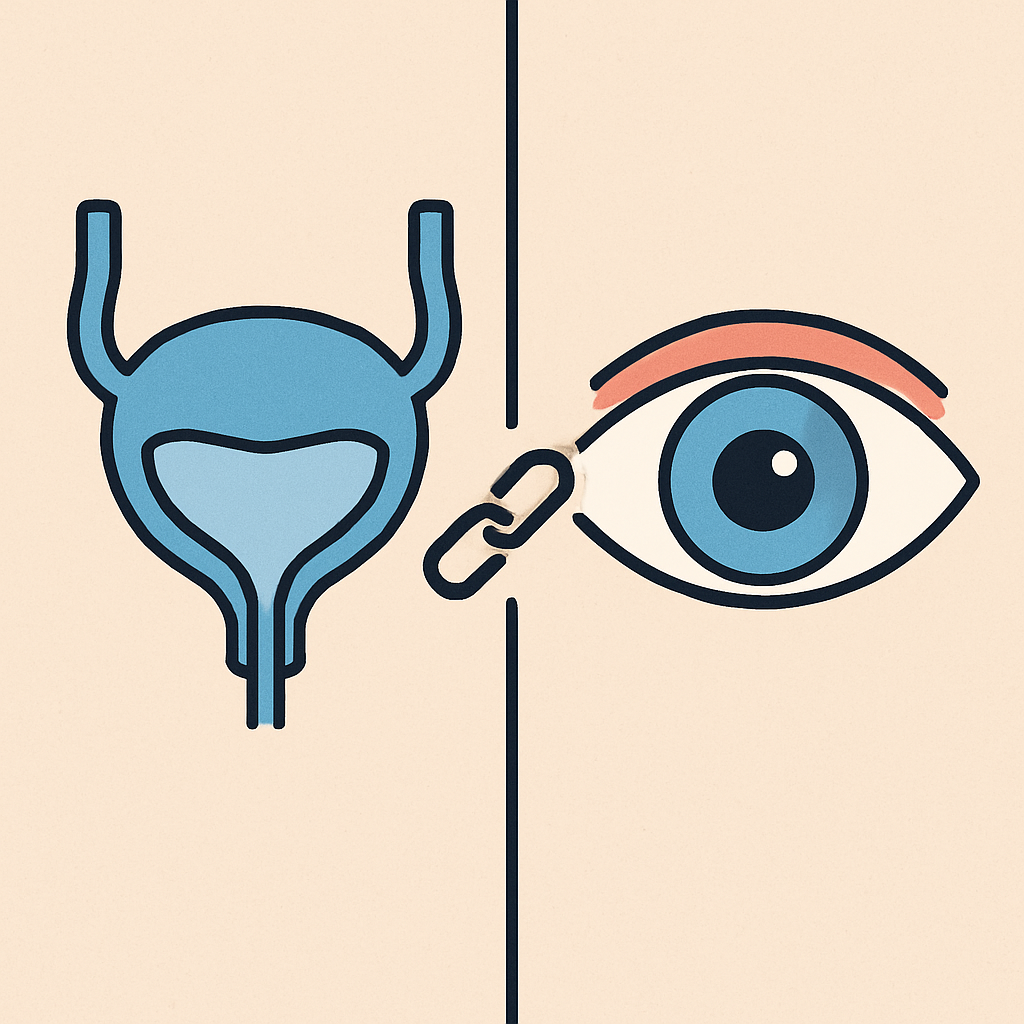When we think about our health, we often separate it into categories—eyes go to the eye doctor, bladder problems go to the urologist. But did you know that your eyes and urinary system might be more connected than you think?
Let’s explore the fascinating and often overlooked common links between urological and eye diseases, and why a symptom in one area might be a red flag for another.
1. Diabetes: The Double-Edged Sword
Diabetes is a major player when it comes to multi-system damage.
- In the urinary system, it can cause bladder dysfunction, urinary tract infections, and sexual problems.
- In the eyes, it leads to diabetic retinopathy, cataracts, and even blindness if uncontrolled.
Tip: If you have diabetes, regular eye exams and urological check-ups are both essential.
2. High Blood Pressure (Hypertension)
Silent but deadly, hypertension wreaks havoc on delicate blood vessels throughout the body.
- In the kidneys and bladder, it can result in chronic kidney disease and affect urination.
- In the eyes, it can cause hypertensive retinopathy, damaging the retina and affecting vision.
Why the link? Tiny blood vessels in both systems are extremely sensitive to pressure changes.
3. Autoimmune Conditions (Like Sjögren’s Syndrome)
Autoimmune diseases often target moisture-producing glands.
- Urological impact: Frequent urination, bladder inflammation.
- Eye impact: Dry, itchy, irritated eyes—often one of the first symptoms.
Systemic diseases often show up in surprising places—your body is more connected than you think.
4. Multiple Sclerosis (MS) and Neurological Disorders
- Urological symptoms: Bladder urgency, retention, or incontinence.
- Ocular symptoms: Optic neuritis (inflammation of the optic nerve), vision loss.
MS is a neurological condition, and the nerves controlling both the eyes and bladder can be affected together.
5. Medication Side Effects: One Pill, Many Effects
Some medications used to treat urological conditions (like anticholinergics for overactive bladder) can cause:
- Blurred vision
- Dry eyes
Conversely, eye drops used for glaucoma (like beta blockers) can enter the bloodstream and cause:
- Slowed heart rate
- Urinary retention (especially in men with enlarged prostates)
Always share your full medication list with all your healthcare providers.
6. Aging and Degenerative Changes
As we age, our eyes and urinary system are among the first to show signs of wear and tear.
- Eye problems: Macular degeneration, glaucoma, cataracts
- Urological issues: Incontinence, prostate enlargement, overactive bladder
These may seem like separate concerns, but they often signal broader age-related systemic changes.
Final Thoughts
The human body is a network of systems that work in harmony. When one system is affected, others often feel the ripple effect. Recognizing the connection between urological and eye diseases can lead to earlier diagnoses, better treatment, and a more holistic approach to health.
If you’re experiencing symptoms in either area, don’t hesitate to bring them up with your healthcare provider—sometimes the key to solving one problem lies in an entirely different part of the body.

